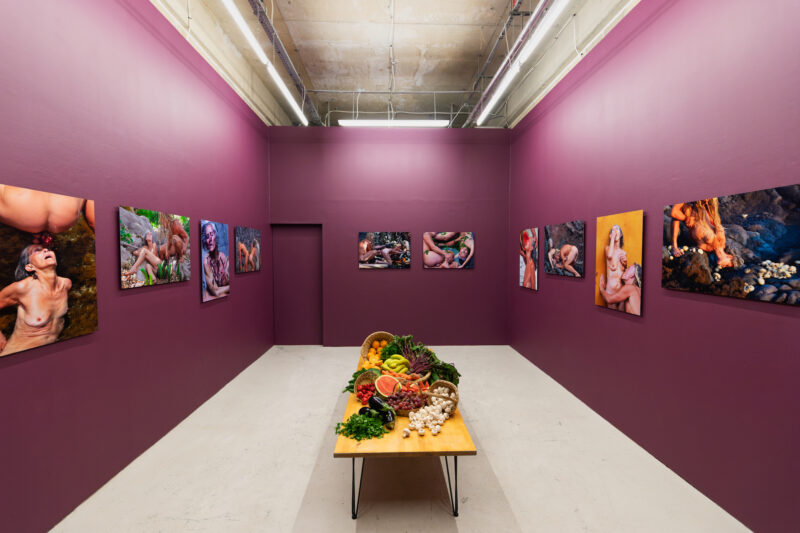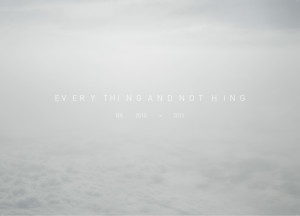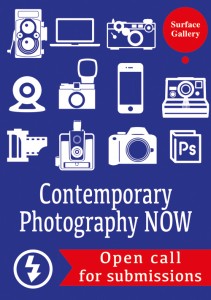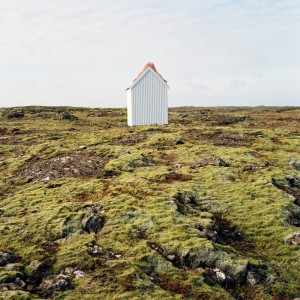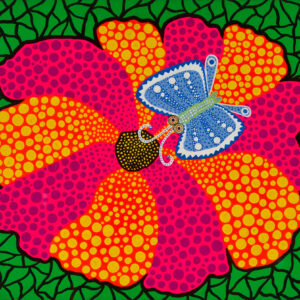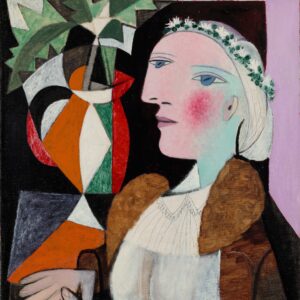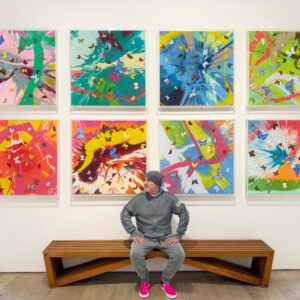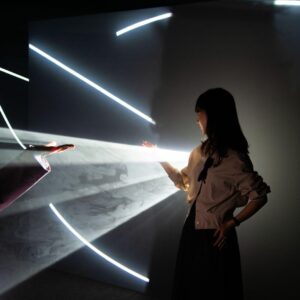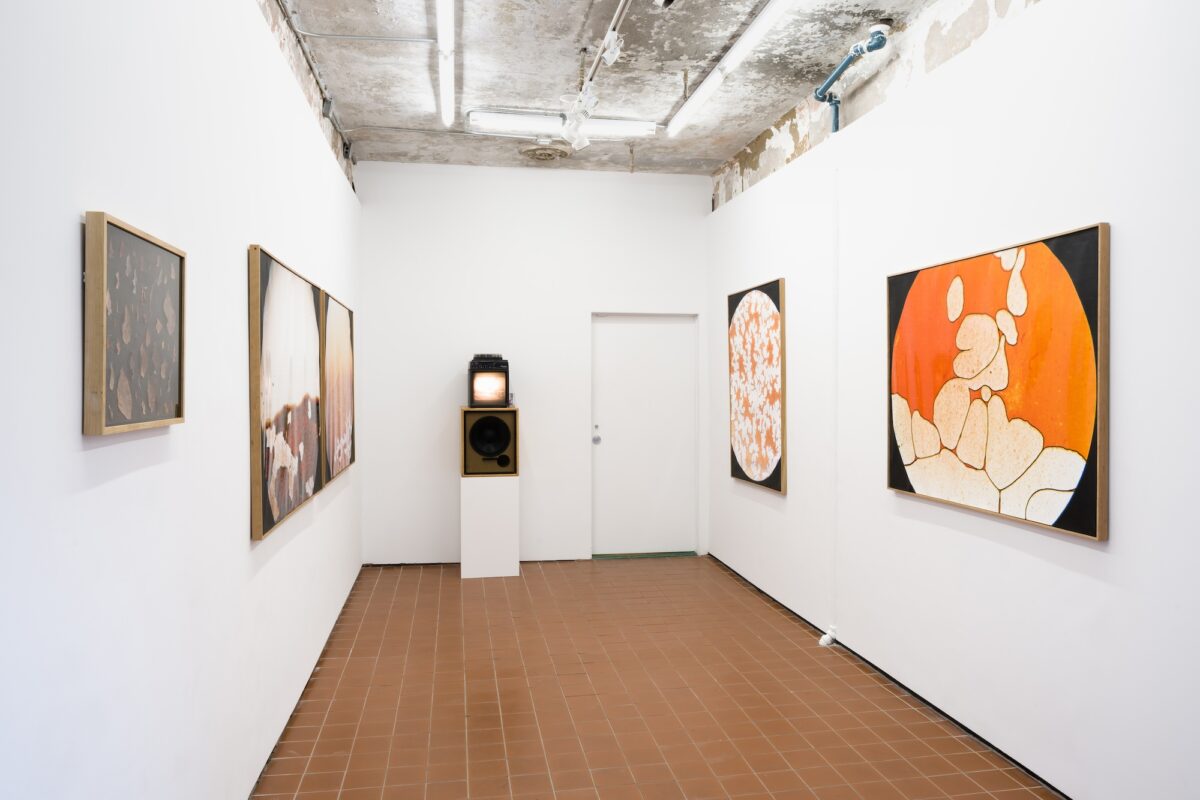
Entrance has opened ONE BLOOD, an exhibition of photographs and a slideshow by Frank Lebon, his first solo exhibition in the United States. Drawing from methods of portraiture, Lebon captures microscopic images of blood sourced from his community.
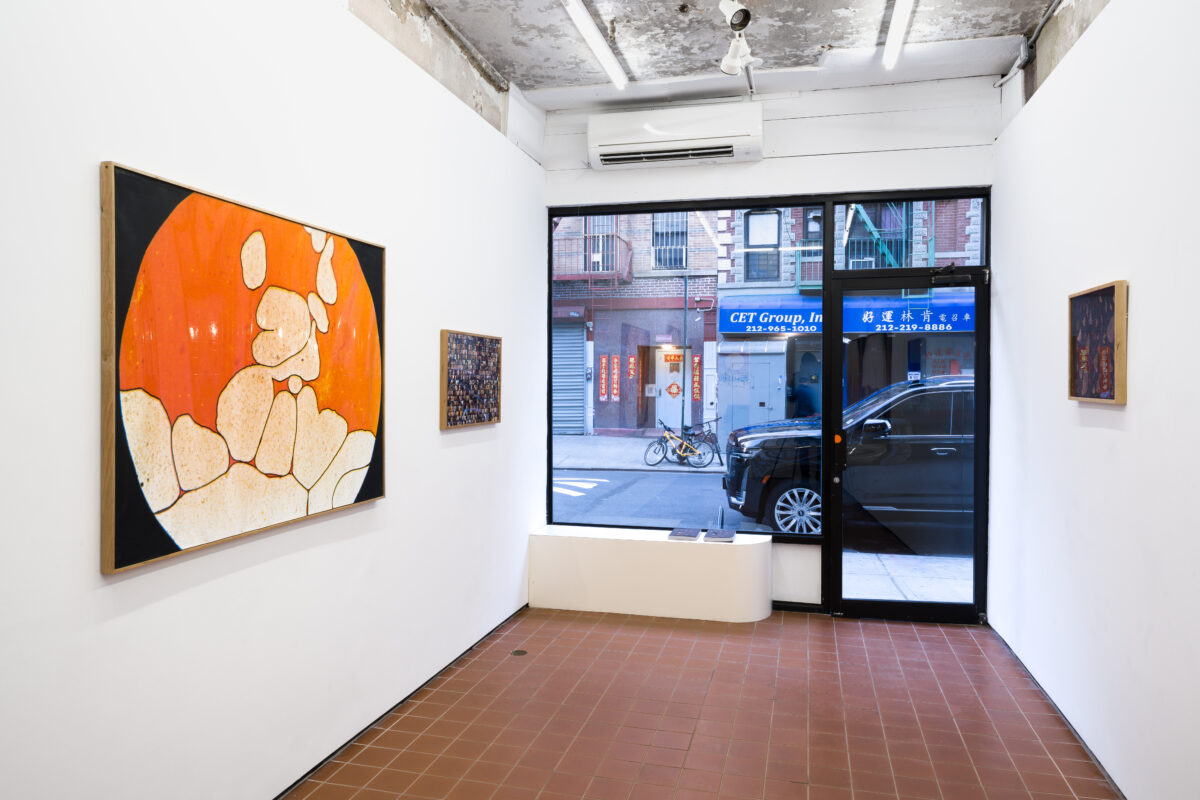
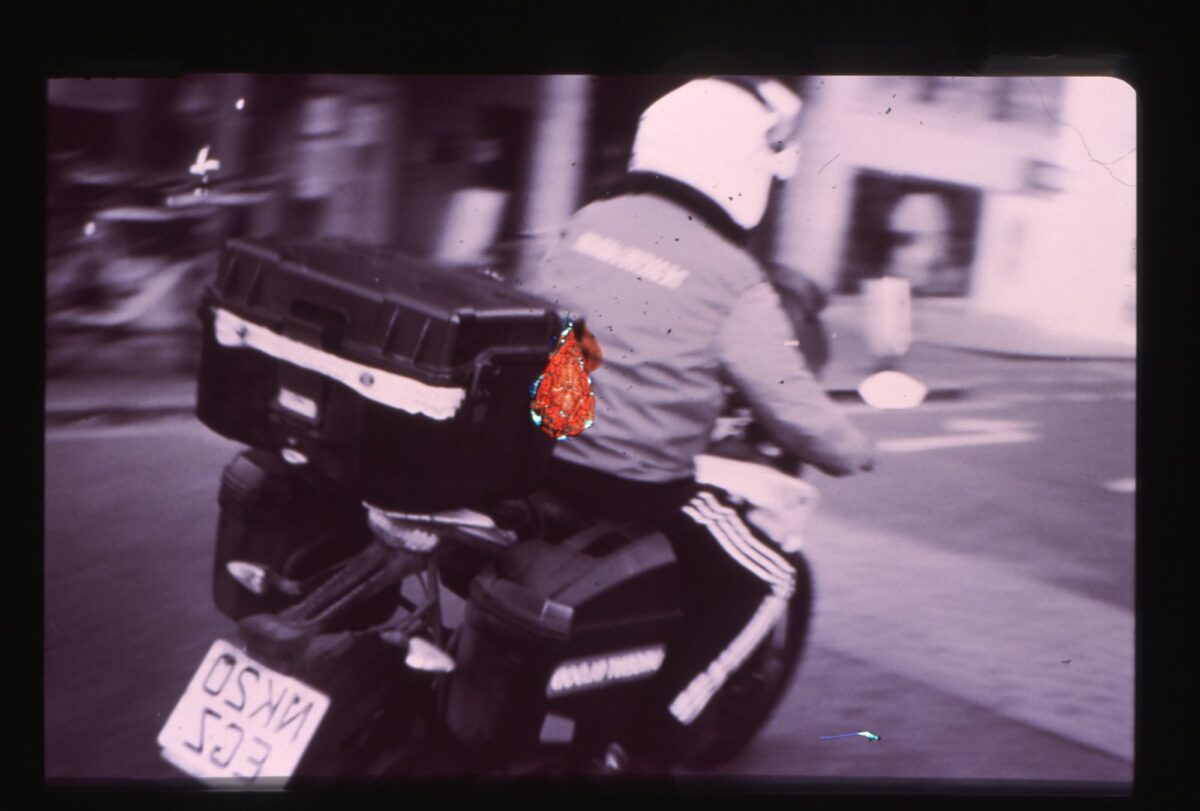
artist’s blood, sound, looped at randomised intervals
Lebon collects blood micro-samples from family and friends during informal gatherings like lunches or parties, inviting them to participate in intimate sessions where he pricks their fingers and places the droplets on small glass slides. Through photomicrography, he enlarges these specimens, exposing forms hidden from the naked eye to refocus our attention on our essential biological nature. This approach not only formally abstracts the documentation of biomaterial but also explores the interconnectedness within his family, community, and humankind, symbolizing a shared life-blood.
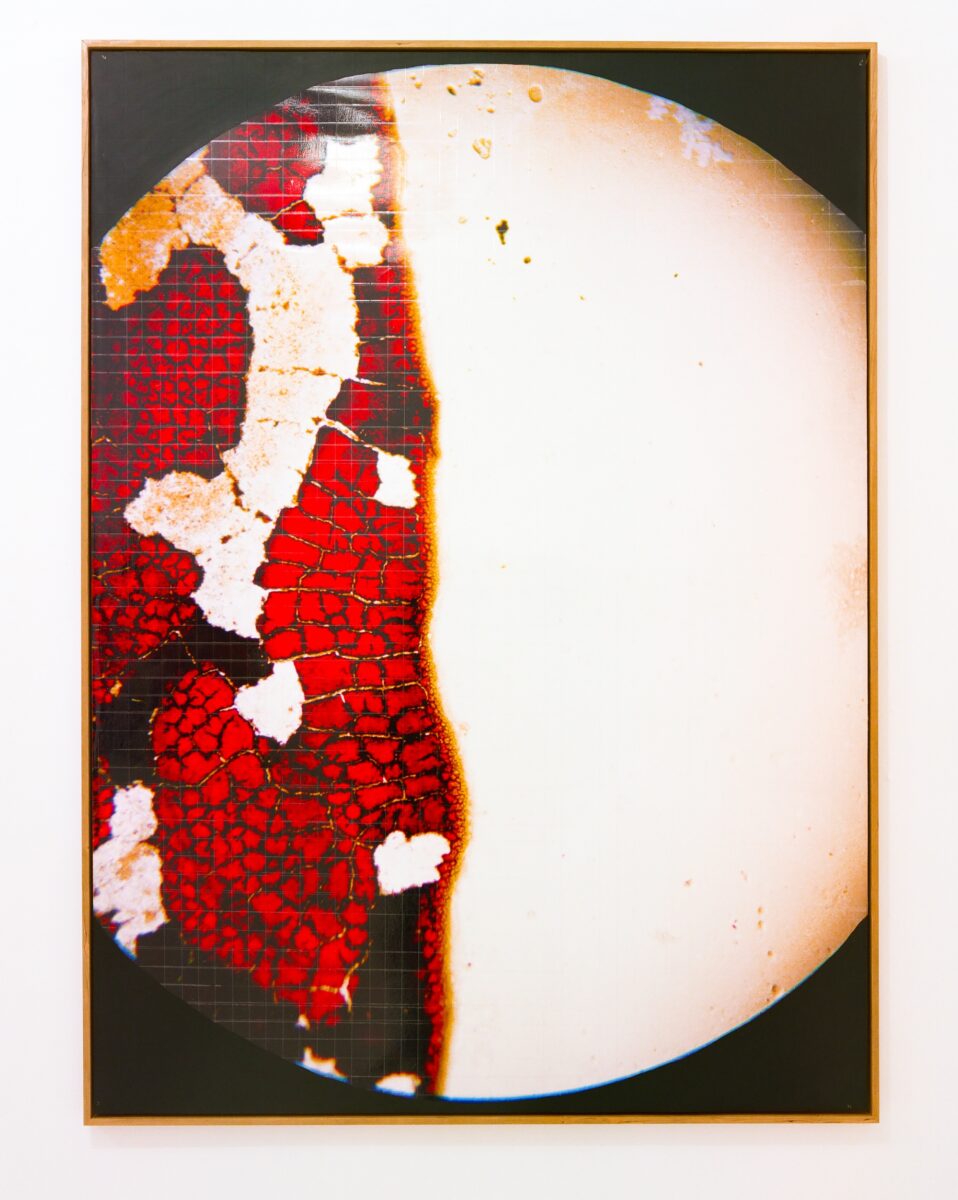
The resulting photographs are printed and layered with cross-hatched strips of cellotape, which add a protective gloss and mirror the scale of laboratory slides—a nod to traditional methods of storing blood smears. A layer of paint over the cellotape accentuates the microscope’s circular lens, creating a striking contrast with the rectangular frame. Each photograph is encased in a cherry wood frame, accented by a dark burgundy circle flush with the frame’s surface. This circle is created by the framer and collaborator, Peter Eason Daniels, who soaks a dowel in his own blood to achieve the distinctive color. The frames feature four counter-points for installation, allowing the photographs to present in different orientations.
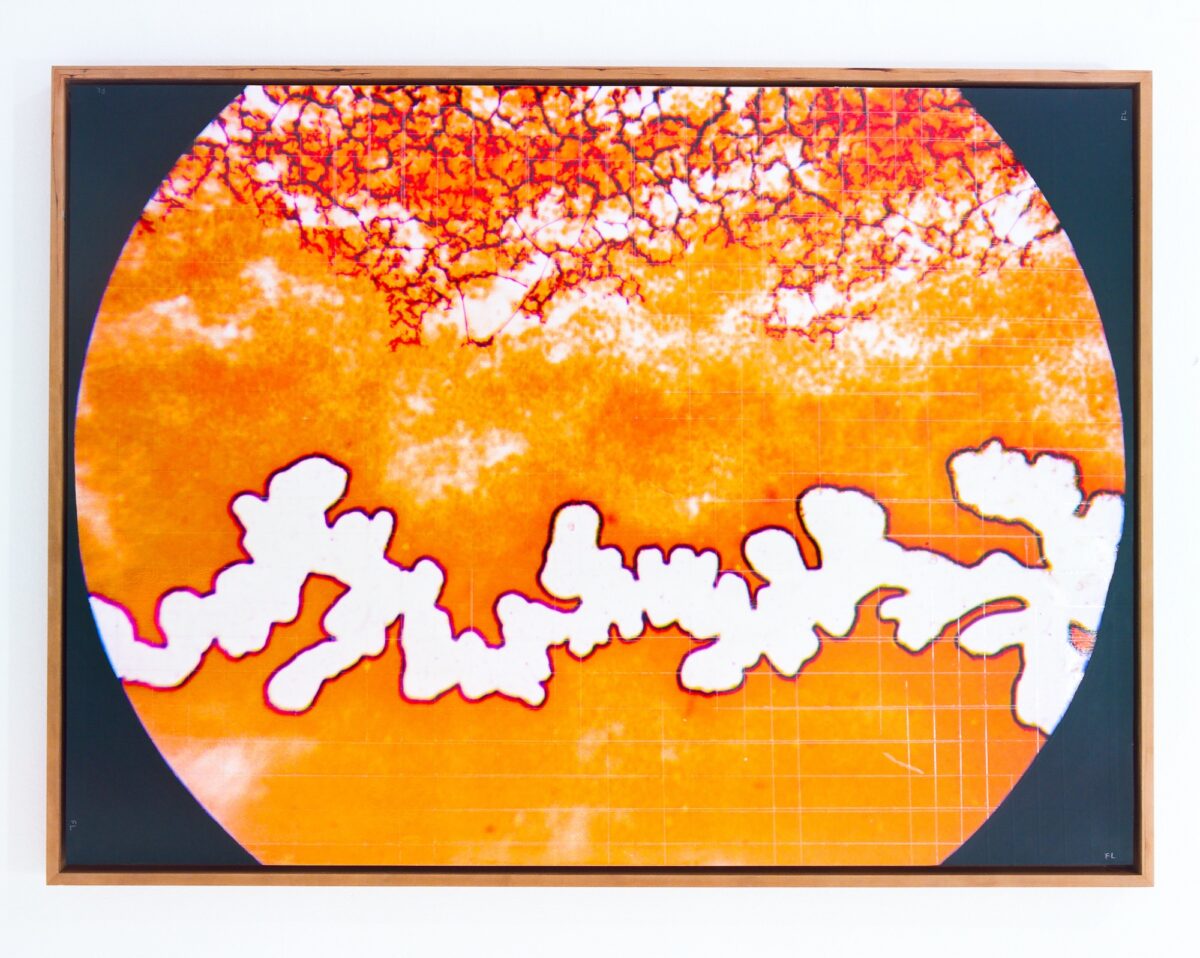
paint, cherry wood, blood stained ash dowel 30 1/4 x 22 7/8 in 77 x 58 cm
In addition to the photographs of individual blood samples, Lebon creates two collaged works using an amalgamation of contact C-prints. For rain falls blooddrops, 2022, he enlarges C-prints of the collected blood samples, arranging them into rows before painting over each to reveal a motif of a perfect rain droplet. one blood, 2022, features cropped contact C-prints of portraits from numerous participants who contributed their blood crafting a nested collective portrait.
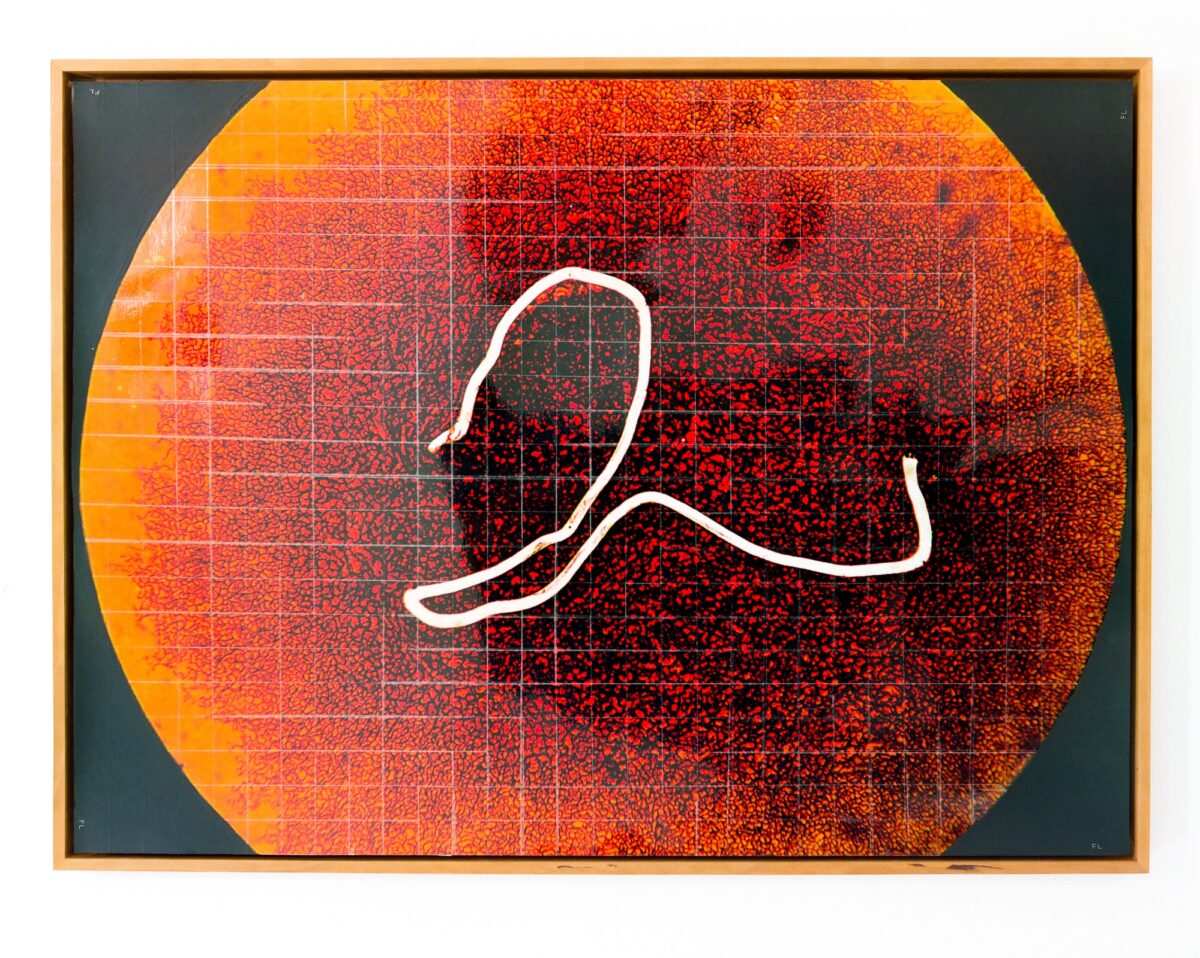
vessels in vain, 2024, is a photographic narrative featuring 80 black and white 35mm slides, each uniquely marked with the artist’s blood. Using the amateur format of the slide show, slides are looped at randomized intervals, with a mechanism that changes the slide in sync with specific tones in the accompanying three-audio cassette soundtrack, each tape lasting 120 minutes. No two viewings are exactly the same, emphasizing the fluidity and ephemeral nature of the moments captured. Lebon created a chronicle of isolating times—a blend of London’s empty streets during lockdown, urgent blood bike couriers, and intimate snapshots of loved ones—forming a visual diary that records the essence of both personal and collective experiences of unprecedented mass-isolation during a global pandemic. ONE BLOOD invites viewers to explore the profound, often unseen, networks of life that sustain us, reflecting on the perpetual interplay between individual identity and collective humanity.
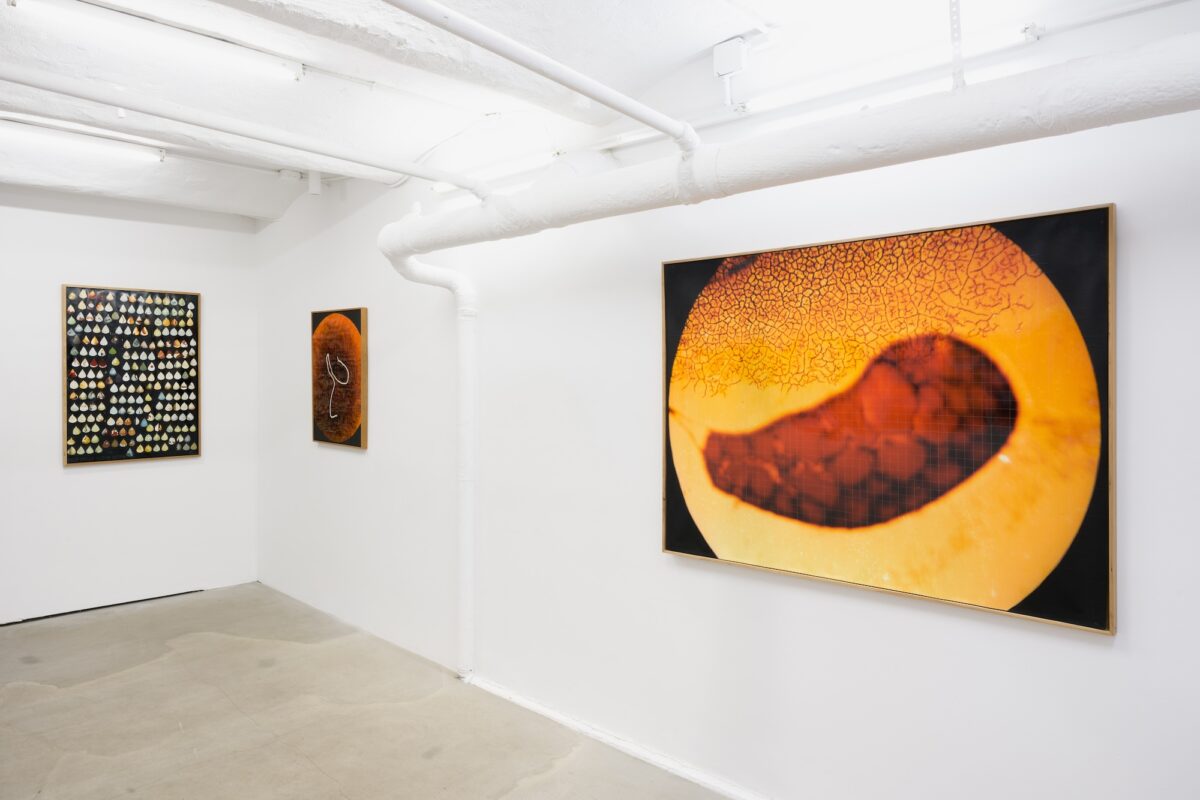
Frank Lebon, ONE BLOOD, April 24th–May 25th, 2024, Entrance
Curated by Laura Serejo Genes
About
Frank Lebon (b. 1993, London) is a photographer, filmmaker, and graphic artist. Using a range of media processes, Lebon combines unexpected elements, removing their context to the point of dissonance. Lebon is known for the music videos and album art he creates for artists including King Krule, James Blake, and Mount Kimbie. Lebon will have his debut solo exhibition at Entrance, New York in April 2024 and has exhibited at Soft Opening, London and participated in the Drawing a Blank exhibition series. Recent publications include his eponymous artist book ONE BLOOD (Little Big Man, 2024).
Laura Serejo Genes (b. 1990, Rio de Janeiro) is a curator, artist, and writer. In addition to her solo projects, Laura works with Kiyoto Koseki in a curatorial partnership. Genes and Koseki served as Curators-in-Residence at Abrons Art Center (2022-2023) and are Frame Curatorial Research Fellows (2024). Since 2017, Laura has worked with Nolan Oswald Dennis and Pedro Zylbersztajn as the Index Literacy Program, a collaborative research practice investigating the politics of indexical forms.
